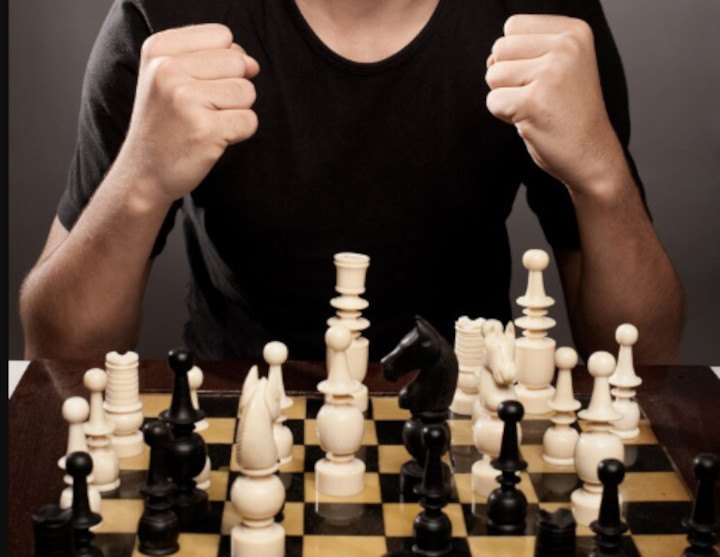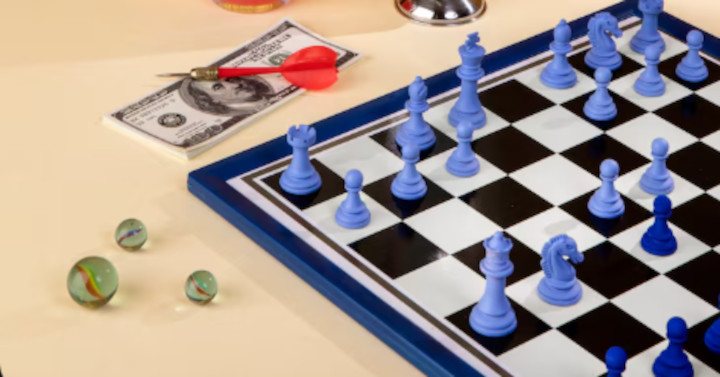Chess Betting: When Logic Meets Excitement
Chess betting is booming, and it is no longer reserved for the hardcore fans. When Nakamura plays Carlsen, money moves. Odds are dynamic. Unlike other sports with their elements of pandemonium and bloodshed, chess is orderly, quantitative, and downright calculating.
That makes betting seem less like gambling and more like forecasting. It is not luck; it is about preparation. It is not dry, though, because blitz formats make games adrenaline shots. And when you have a stake in the game, every action is a double. This is not roulette. This is the calculated risk on the smartest battlefield in the world. Want in? So what is the real edge?
The Rise of Chess Betting
Betting on chess was not as big ten years ago. Now? It is a manipulation of figures. More and more fans are placing a melbet login during live streams, especially in tight blitz matches. Bookmakers have created sections devoted to chess, particularly in areas of rapid and blitz games. The 2020 online boom, triggered by the lockdowns and The Queen's Gambit, brought the game into the limelight. Spectators turned into gamblers.
And the viewership continues to increase. Live broadcasts of competitions such as the Champions Chess Tour may have odds overlays in real-time. Casual fans are casuals and will follow odds just as they follow Twitch chat. This is not a backroom betting—it is regulated, legal, and monitored. Bettors are no longer guessing since AI engines provide a deeper analysis than ever. They are reading numbers, following form, and making more intelligent calls.

Key Betting Types in Chess
There are not as many variables in chess as there are in most sports, but that is what makes betting sharp. There is no emotion involved; it is about the correct type of bet at the right time. This is what people bet on:
- Straight-up: A bet on which of two players will win. The odds are based on ratings and current form.
- Total moves: Over/under bets on the number of moves in the match. Common in blitz and bullet games.
- Precise score: A 1.5 to 0.5 score in two-game matches or 2 to 1 in best-of-threes.
- First capture: A novelty bet on who will make the first piece capture?
Such bets are most successful when you are familiar with the players' styles. A player who plays lots of draws? Bypass the score, bet a cold calculator in blitz? That is why the number of moves is essential. Knowledge of the game flow is everything.
Understanding Factors That Influence Odds
Chess odds do not solely depend on the ranking. Bookmakers consider the momentum of a player, time control experience, and matchup history using algorithms. It does not fit one size fits all. A 2700-rated player can be a master in the classical formats and a loser in blitz. This is the reason why understanding what can influence the odds and why is the way smart bettors stay ahead.
Role of Player Statistics
There is no way to bet without knowing the numbers. The ELO rating is the beginning of the story, but it is not the end of the story. Win rate in specific formats, such as rapid or bullet, will tell you more than the overall score. The performance in the last 6-12 months is a lot more important than the historical data.
The data that is head-to-head is gold. There are certain opponents that some players crumble under pressure against. Other teams will always aim to draw against the best seeds. Moreover, black vs. white performance. It is more efficient to bet on the color that some players are more proficient at, and the sportsbooks will consider this. Sharp bettors do not just rely on ratings but instead on trends.
Impact of Tournament Formats
Not every event is made equal. The format of the game can alter a player's style of play entirely, as well as the way they should perceive odds. Context is where it counts the most. Here are some of the format-specific effects:
- Blitz and bullet: It prefers quicker, intuitive players. Top classical players usually do not perform well
- Knockout brackets: Promote violent play. Fewer ties, more results.
- Team activities: Add stress and a sense of uncertainty. The personal form is not all.
- Tiebreaker rules: Influence strategy in the latter stages of matches. Some players play Armageddon.
It is essential to learn how a tournament is organized. It determines how to prepare, think, and act for risk-averse players. Then adjust your expectations to that, or your bet will have no chance.

Responsible Betting Practices
The fact that chess betting is treated as a game of skill does not imply that its dangers should be overlooked. It does not take long to lose control, even when using logic-based bets. Being sharp involves drawing a line. This is what this practice looks like:
| Practice | What It Means | Why It Matters |
|---|---|---|
| Set a fixed bankroll | Decide your max betting amount weekly or monthly | Prevents chasing losses |
| Track every bet | Log match, stake, and outcome | Helps spot patterns and correct errors |
| Avoid emotional wagers | Don’t bet because you’re “due” or upset | Keeps decisions rational |
| Take regular breaks | Step away when losing focus or betting out of habit | Reduces impulsive behavior |
It is not about not taking risks at all, but taking them professionally. Smart bettors do not bet more when they are frustrated. They stop. That is the part most people never speak of.
Betting vs. Traditional Chess Watching
Betting alters the way you watch a game. It is not so much the position on the board but the position of your money. All mistakes are personal. An opportunity to win at move 38 gone by? That is not only drama, it is a swing in your bet.
You are a spectator of the story when you have no interest in it. When you bet, you are looking for accuracy. Losses are made. A pawn sacrifice can kill an over-/under-. That emotional state makes you alert. You are not a fan; you are an analyst who has something to win or lose.
Well-Known Games That Influenced Gamblers
Sportsbooks were in a panic when Jan-Krzysztof Duda defeated Magnus Carlsen during the semifinals of the FIDE World Cup 2021. It had been more than two years since Carlsen lost a classical game. Most of the money was on him to cruise through. Instead, Duda ended the run-win-run streak and thousands of tickets.
The next surprise was in the 2022 Chessable Masters. Praggnanandhaa defeated Carlsen in the rapid time control. The odds? Huge. Most of the fans dismissed it based on format, but the bettors who went against the favorite did not lose. These games changed the way people thought: it is not always good to bet on the favorites in faster formats.
Future of Chess and Betting
Chess betting is not a fad anymore; it is infrastructure. Odds are being tightened, and the bettors are getting sharper with live stats, player data, and engine insights. The AI tools could even the playing field between the books and the bettors. What then? Betting in the game during the movement of the positions.